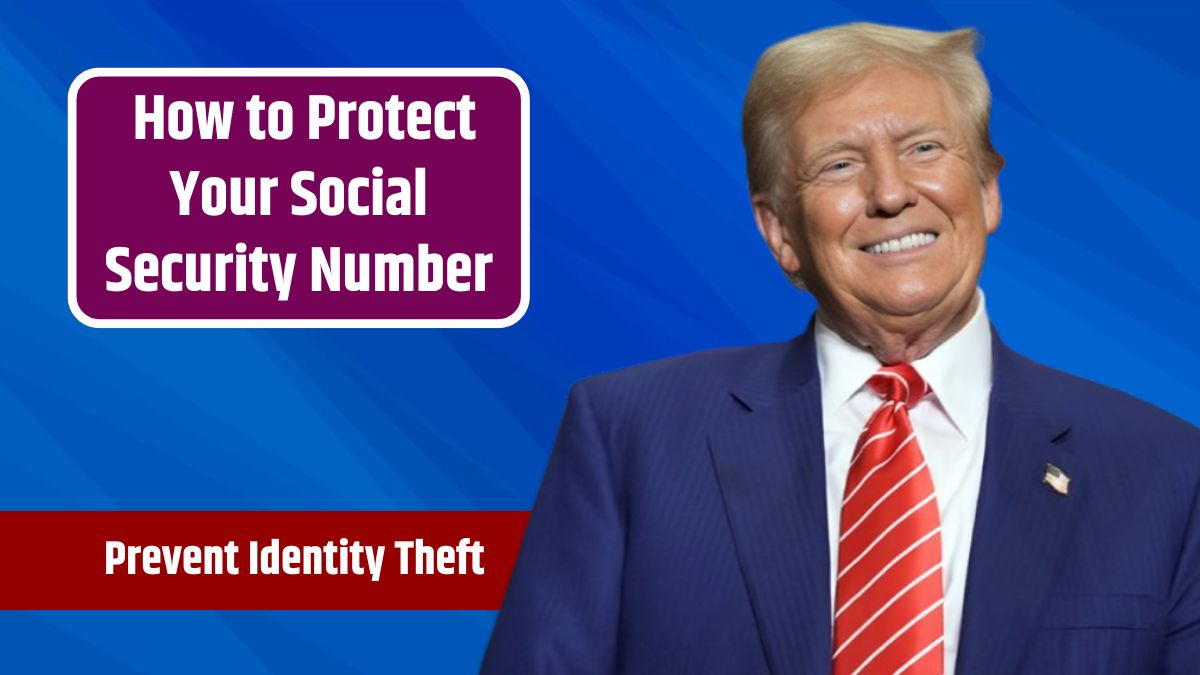Your Social Security Number (SSN) is a crucial piece of personal information used by the U.S. government to track your earnings, manage benefits, and verify your identity. This unique identifier links to essential data, including your credit history, tax records, employment, and access to government programs. Because of its importance, your SSN is a primary target for identity theft and fraud. Here’s what you need to know to protect it and avoid becoming a victim.
Critical to Protect
If someone gets access to your SSN, they can use it to:
- Open credit accounts or take out loans in your name.
- Claim your tax refunds, leaving you to deal with the IRS.
- Apply for jobs or benefits fraudulently.
- Access your bank accounts and other sensitive financial data.
In short, unauthorized use of your SSN can lead to financial loss, damaged credit, and a long, frustrating process of fixing the issues created by identity theft.
How to Safeguard
Given the risks associated with a stolen SSN, it’s vital to take steps to secure it. Here are some strategies you can use:
1. Use the Self Lock Feature
The government offers a service called Self Lock, available through E-Verify, which helps prevent misuse of your SSN for employment purposes. When activated, Self Lock blocks your SSN from being used in employment verification processes, stopping unauthorized individuals from securing a job in your name.
To use Self Lock:
- Create an account on E-Verify.gov.
- Activate the Self Lock feature for free.
Alternatively, you can request an SSN lock directly from the Social Security Administration (SSA) by calling 1-800-772-1213. Keep in mind that calling the SSA may involve longer wait times.
2. Monitor Your Social Security Account
The SSA provides an online platform called my Social Security, where you can review your earnings and monitor benefits. It’s free to set up and offers a reliable way to track your Social Security activity and detect suspicious changes.
- Check Your Account Annually: Even if you’re not receiving benefits yet, reviewing your earnings history once a year can help ensure there are no discrepancies.
- Update Your Access: If your account is over three years old, you may need to reverify your access through Login.gov or ID.me.
Warning Signs
Even if you take steps to protect your SSN, it’s essential to be aware of warning signs that indicate potential fraud. Here are some red flags to watch out for:
1. Unexpected Bills
If you receive bills for accounts you didn’t open or services you didn’t request, it’s a clear sign that someone may be using your SSN to make fraudulent transactions. In such cases:
- Contact the Issuer Immediately: Report the unauthorized activity.
- Freeze Your Credit: Placing a credit freeze can prevent further misuse of your information.
2. Tax Forms from Unknown Employers
Receiving a W-2 or 1099 form from a company you’ve never worked for could mean that someone is using your SSN for employment. This type of fraud can cause issues with the IRS, potentially delaying your tax refund or causing tax complications.
- Report the Issue to the IRS: Contact the IRS as soon as possible and explain the situation to avoid any legal troubles.
3. Problems with Your Tax Return
If you attempt to file your tax return and receive a notification from the IRS stating that a return has already been submitted under your name, it’s a strong indicator of identity theft. Thieves often use stolen SSNs to claim tax refunds fraudulently.
- Visit IdentityTheft.gov: Report the incident and complete Form 14039 (Identity Theft Affidavit) to alert the IRS and start the recovery process.
4. Unfamiliar Activity on Your Credit Report
One of the best ways to detect SSN misuse is by checking your credit report regularly. If you notice new accounts or credit lines that you didn’t apply for, it’s likely that someone is using your identity.
- Check Your Credit Report Annually: You are entitled to a free credit report once per year from each of the three main credit bureaus: Equifax, Experian, and TransUnion. Access them through AnnualCreditReport.com.
- Monitor Your Credit Regularly: Request a report from one bureau every four months to stay on top of any changes.
5. Denial of Government Benefits
If you’re denied benefits like disability, Medicare, or unemployment assistance, it could indicate that someone else is using your SSN to claim these benefits fraudulently.
- Contact the Appropriate Agency: Explain the issue and follow their procedures to restore your benefits.
if You Suspect SSN Fraud
If you believe your SSN has been compromised, take action immediately:
- Report Identity Theft at IdentityTheft.gov: This site offers a step-by-step recovery plan and helps you complete necessary forms, like the Identity Theft Affidavit (Form 14039).
- Notify the IRS: Inform the IRS of any issues related to your taxes or employment fraud involving your SSN.
- Contact Your Bank and Credit Providers: Let them know about the fraud to prevent unauthorized access to your accounts.
- Place a Fraud Alert or Credit Freeze: Contact one of the three major credit bureaus to place a fraud alert or credit freeze, making it more difficult for thieves to open accounts in your name.
How to Stay Vigilant
Protecting your Social Security Number requires ongoing diligence. Here’s a quick checklist to help you stay safe:
- Never Share Your SSN Unnecessarily: Avoid giving out your SSN unless it’s absolutely required.
- Shred Sensitive Documents: Dispose of old tax forms, bank statements, and other documents containing your SSN securely.
- Use Identity Theft Protection Services: Many banks and credit providers offer free services that can help monitor your SSN and alert you to suspicious activity.
With the right precautions, you can significantly reduce the risk of SSN fraud and protect your financial future.
FAQs
What is a Social Security Number (SSN)?
An SSN is a unique identifier used to track your earnings, benefits, and identity.
How can I prevent my SSN from being used for employment fraud?
Use the Self Lock feature through E-Verify to block unauthorized use.
What should I do if I see unfamiliar accounts on my credit report?
Contact the credit bureaus and place a fraud alert or freeze your credit.
How can I monitor my Social Security benefits?
Set up a free account on the my Social Security platform.
What should I do if my SSN is stolen?
Report the theft at IdentityTheft.gov and notify the IRS immediately.






